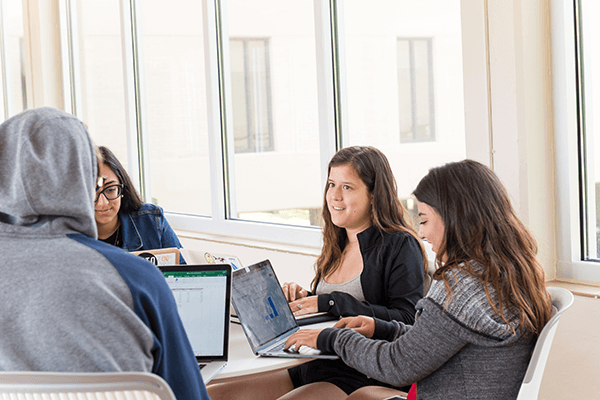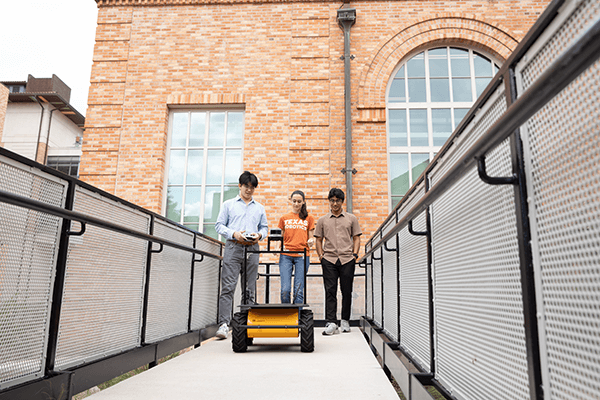Apply
Ready to become a Longhorn? Connect with admissions counselors through the Office of Admissions website for updates on your application status, admission decisions, campus visit events, academics, financial aid, housing and more. The Office of Admissions oversees the undergraduate admission process and is here to guide you every step of the way.
Interested in a specialized program?
The Department of Computer Science offers a variety of honors and interdisciplinary programs designed to make your undergraduate experience uniquely yours. Explore the programs below for details on how to apply.

X+CS Integrated Degree Program
Combine Computer Science with another field to shape a degree that fits your goals. Open to incoming and current students, the X+CS Integrated Degree Program prepares you to solve today's complex challenges that span disciplines.

Texas Robotics Undergraduate Honors Program
Join the Texas Robotics Honors Program to gain hands-on research experience, take interdisciplinary courses and connect with a dynamic community. As a current UT student, you can apply for the Robotics Minor and delve into robotics, regardless of your prior experience.

Texas Honors Computer Science and Business
The Texas CSB program, open to incoming freshmen, integrates business and computer science, preparing honors students for top-tech careers with rigorous coursework and exclusive internship opportunities.

Turing Scholars Honors Program
The Turing Program, open to both incoming and current students, combines small classes and close faculty interaction with the vast resources and research opportunities of a major university.
Discover what it’s like to be a UT Computer Science student!
Meet a student ambassador for an in-person coffee chat and GDC building tour (available on Mondays and Fridays), or opt for a virtual info session to explore from anywhere.
Out-of-State Accommodations
For out-of-state or off-schedule visitor accommodations, please email ambassadors@cs.utexas.edu and we will be happy to assist you.




